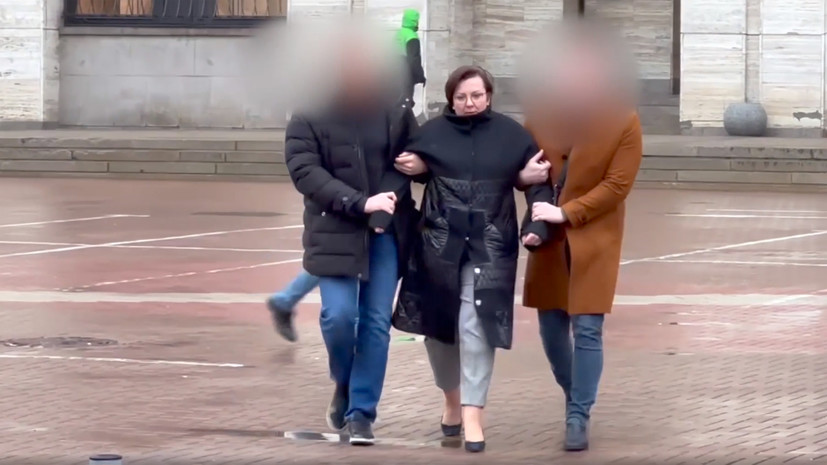The FSB of Russia announced the detention of a Polish citizen while receiving a bribe.
As stated in the message of the Center for Public Relations of the department, an employee of an international financial organization with diplomatic status, a citizen of the Republic of Poland, Bokschneider Malgorzata Ewa, was caught red-handed.
According to the FSB, the arrest occurred while receiving a bribe in the amount of €20,000 for the preparation of fictitious shipping documentation for exemption from customs duties when importing commercial quantities of alcohol.
It is specified that as a result of the incident, a Polish citizen was declared by the Russian Foreign Ministry an “unacceptable person”, she was asked to leave the territory of the Russian Federation within a week.
From the video published by the FSB, it follows that the detainee, who has diplomatic status, worked at the International Bank for Economic Cooperation.
On operational footage, you can see how she leaves the building, after which she takes an envelope with money, while uttering the phrase: "We are already like spies."
Subsequently, the recording shows banknotes and traces of marked banknotes on the hands of the detainee.
As a result of operational-search activities, a warehouse for storing contraband was installed, three Russian citizens were detained, involved in organizing channels for the illegal import of alcohol into the country.
Polish citizen detained for taking €20,000 bribe for importing alcohol
A contraband consignment of alcoholic beverages with a volume of more than 40 tons and a value of over $2 million was also seized.
200.2 (smuggling of alcoholic products) and part 6 of Art.
171.1 of the Criminal Code of the Russian Federation (production, purchase, storage, transportation or sale of goods and products without marking).
On the recording published by the FSB, an unnamed representative of the department also told the details of the scheme for importing smuggled alcohol into Russia.
According to him, the products were formalized as deliveries to diplomatic missions.
“In October 2022, the FSB of Russia stopped the channel of smuggling of alcoholic products from European countries to the Russian Federation under the guise of supplies in the interests of foreign missions of foreign states,” says an employee of the department on the recording.
He notes that, in accordance with the norms of international law, consignments transferred to the address of diplomats of other states are exempted from paying customs duties.
According to the assessment voiced by the FSB, as a result of this work of the Russian special services, damage to the federal budget in the amount of 173 million rubles was prevented.
The incident was also reported to the Russian Interior Ministry.
According to the department, three residents of the city of Moscow were charged with smuggling a large batch of alcoholic beverages without special marking in order to sell them on the territory of the Russian Federation.
According to the official representative of the Russian Ministry of Internal Affairs, Irina Volk, two citizens illegally moved a contraband consignment of alcohol across the customs border of the Customs Union.
“Transportation was carried out on the basis of fictitious shipping documents.
The attackers handed over part of the goods to an accomplice for sale, the rest of the batch was placed for storage in one of the warehouse complexes on the territory of the Moscow region, ”the press service of the Ministry of Internal Affairs quotes her as saying.
Note that in March, the FSB also announced the detention in Moscow of an agent of the Security Service of Ukraine, who, along with Ukrainian citizenship, had a Polish passport.
According to the agency, the attacker spied on Ukrainian journalists and political scientists who worked in the Russian Federation, and also tried to get information about military personnel who are participating in a special military operation on the territory of Ukraine.
During interrogations by the FSB, the detainee, among other things, said that while studying at the Warsaw Academy of Military Art, under the pseudonym Lis, he collaborated with the Polish Intelligence Agency, providing information about students from Belarus and Ukraine.

